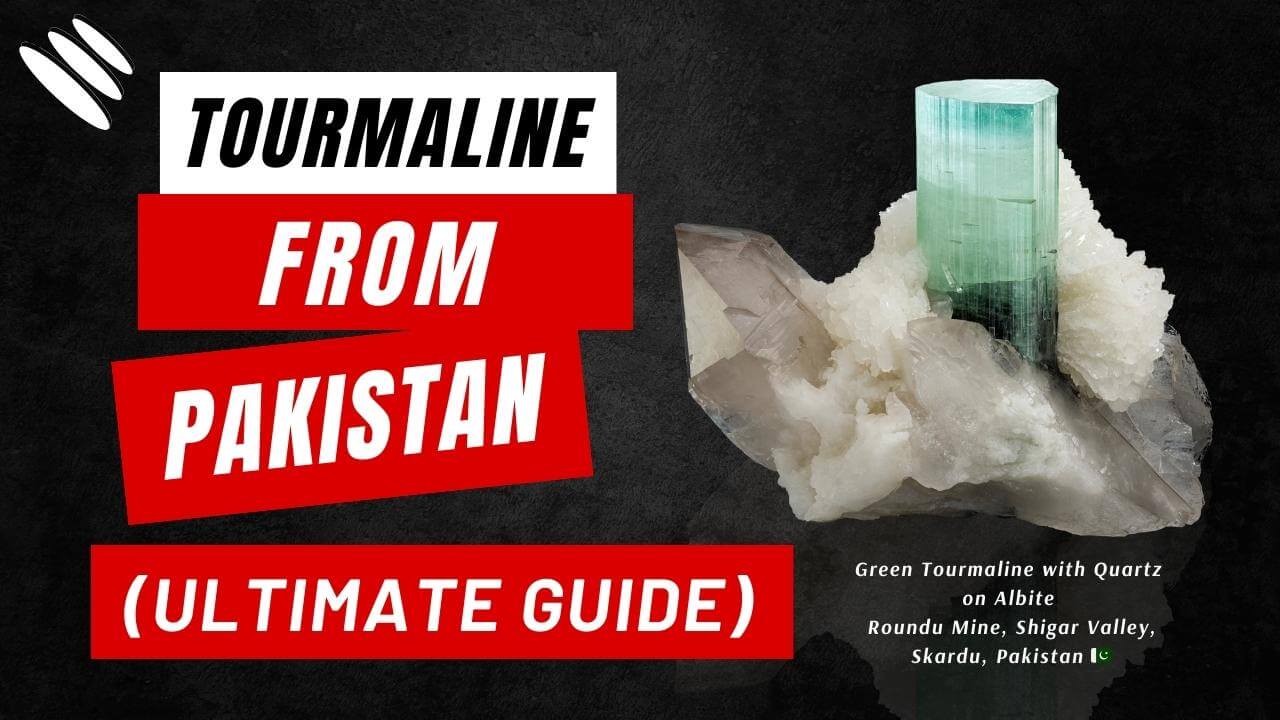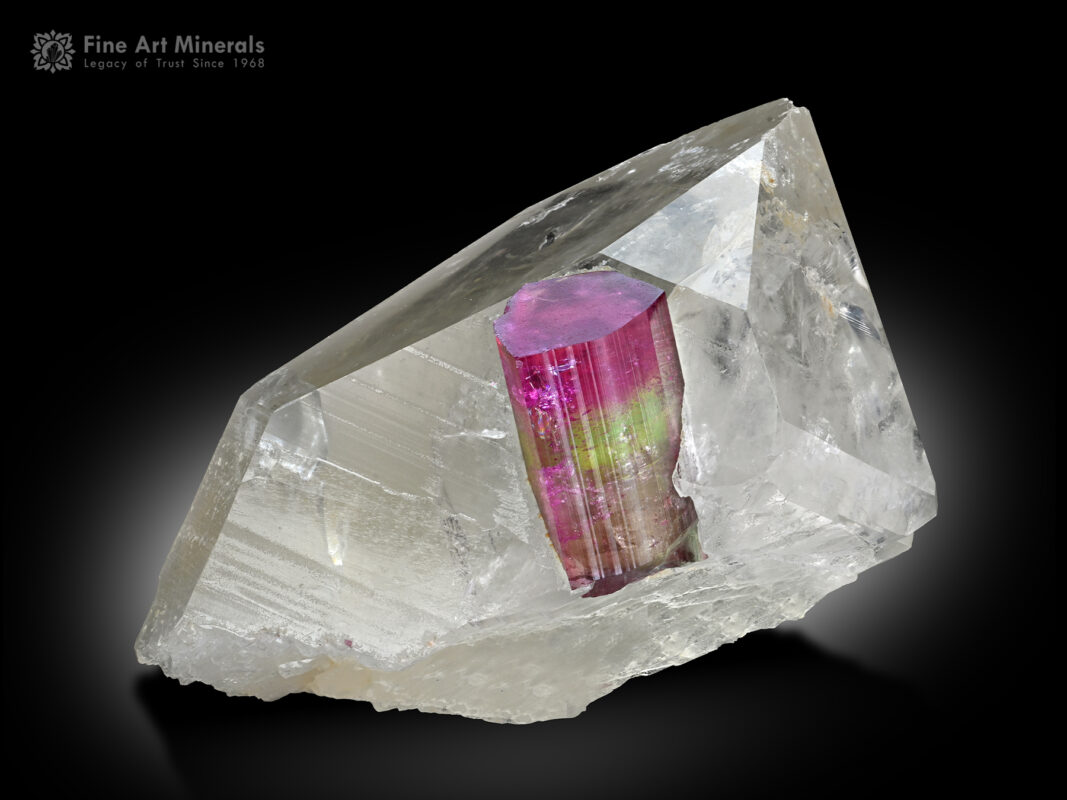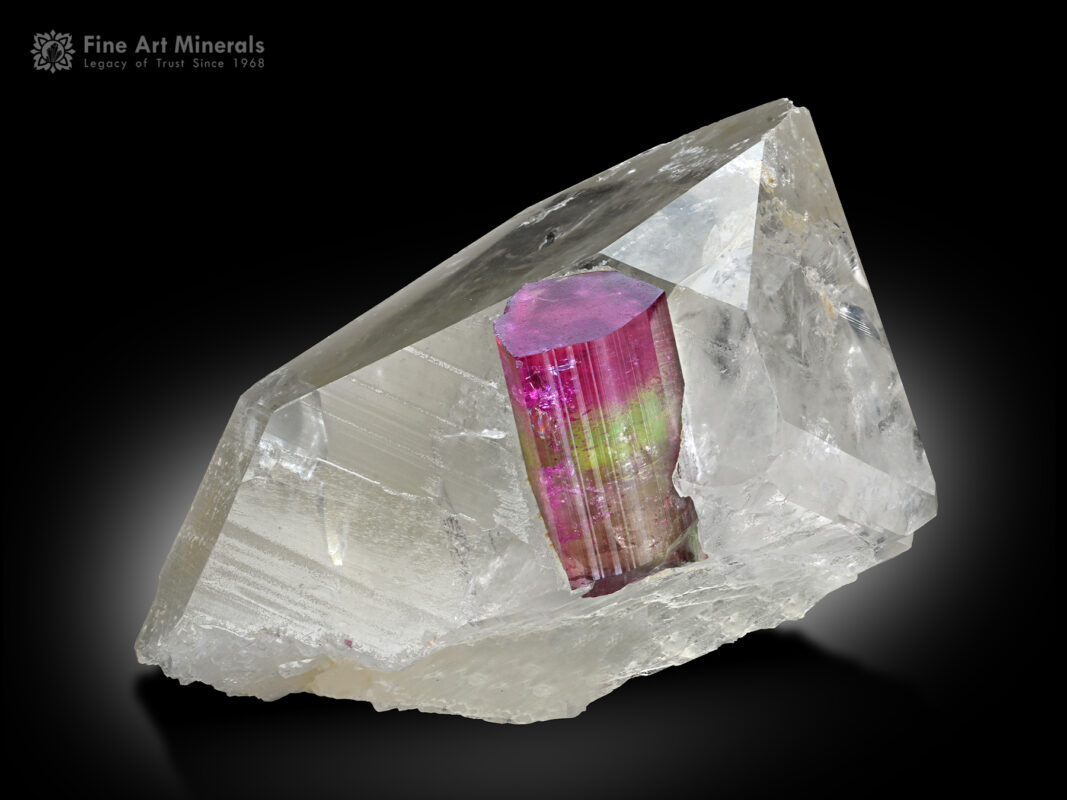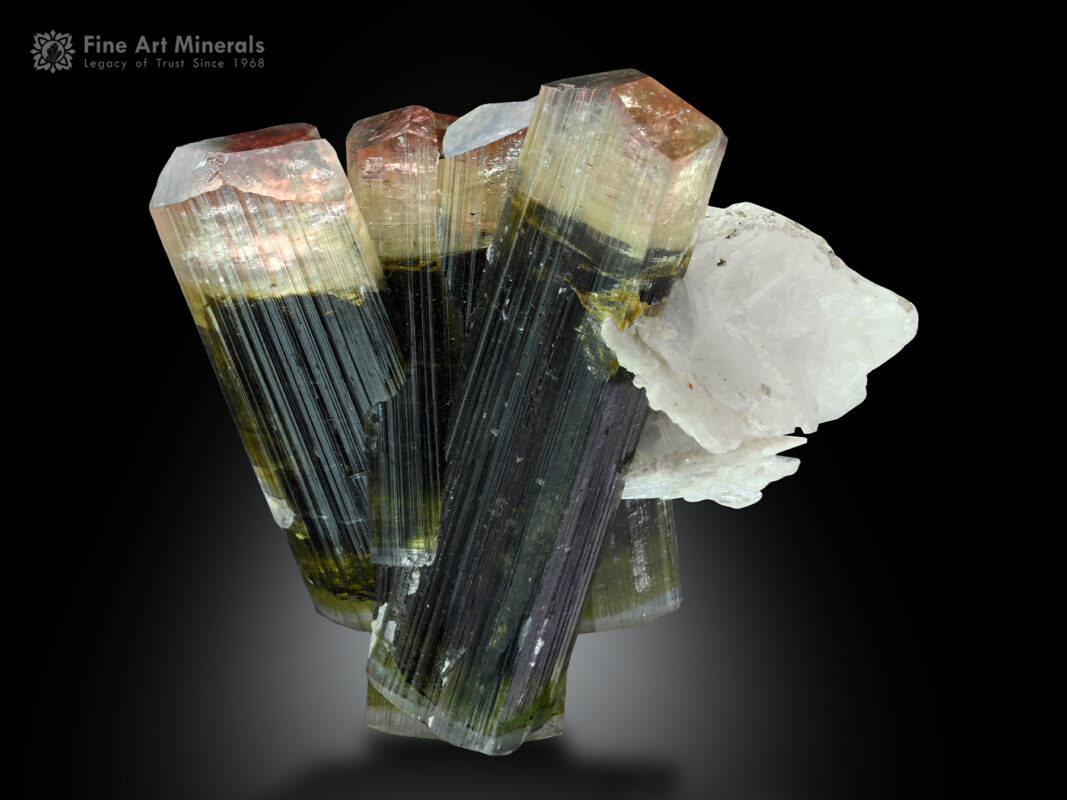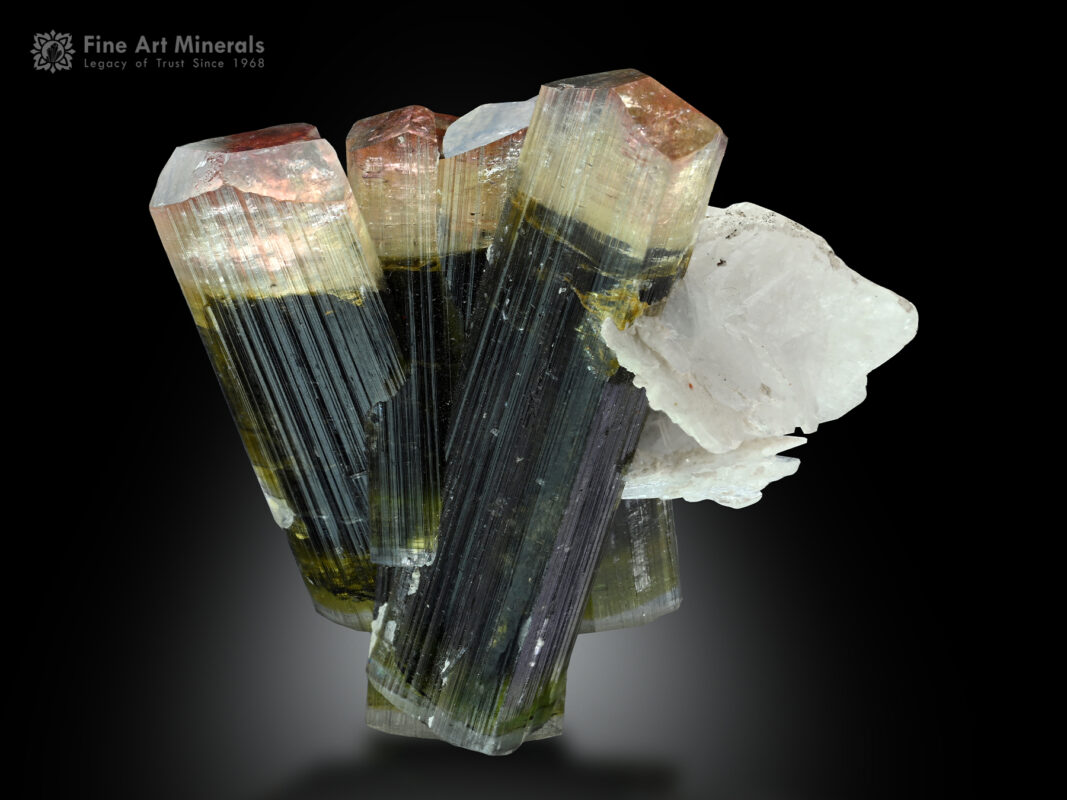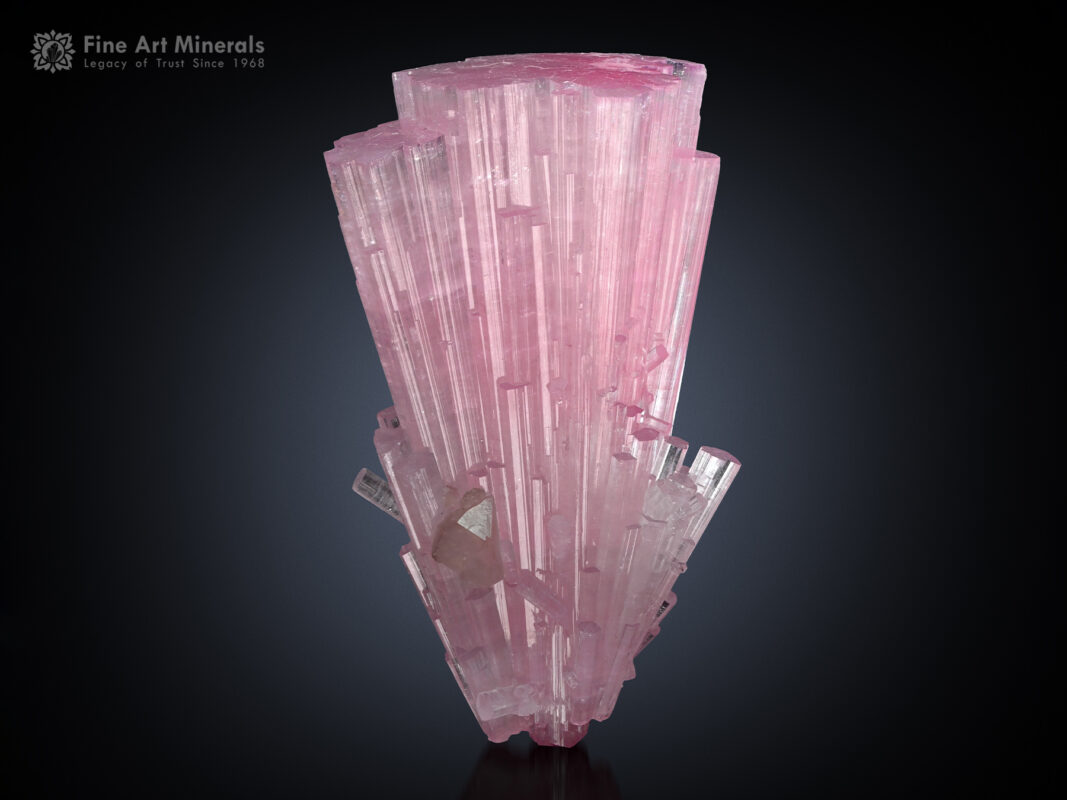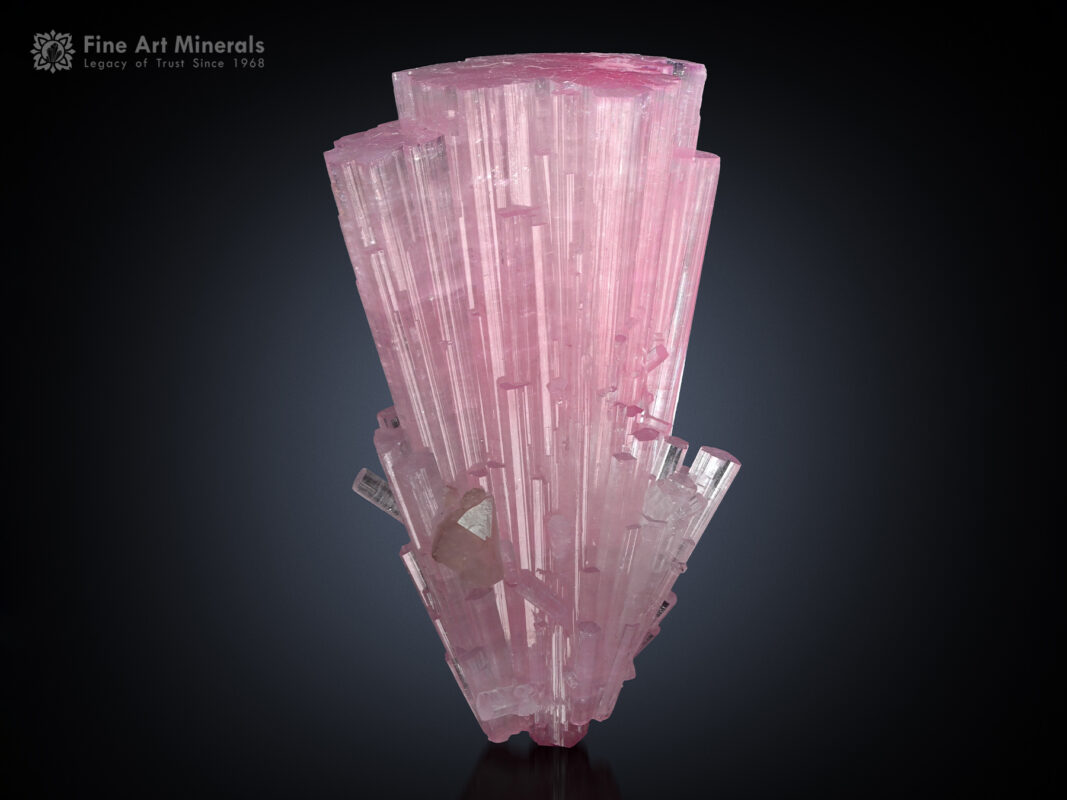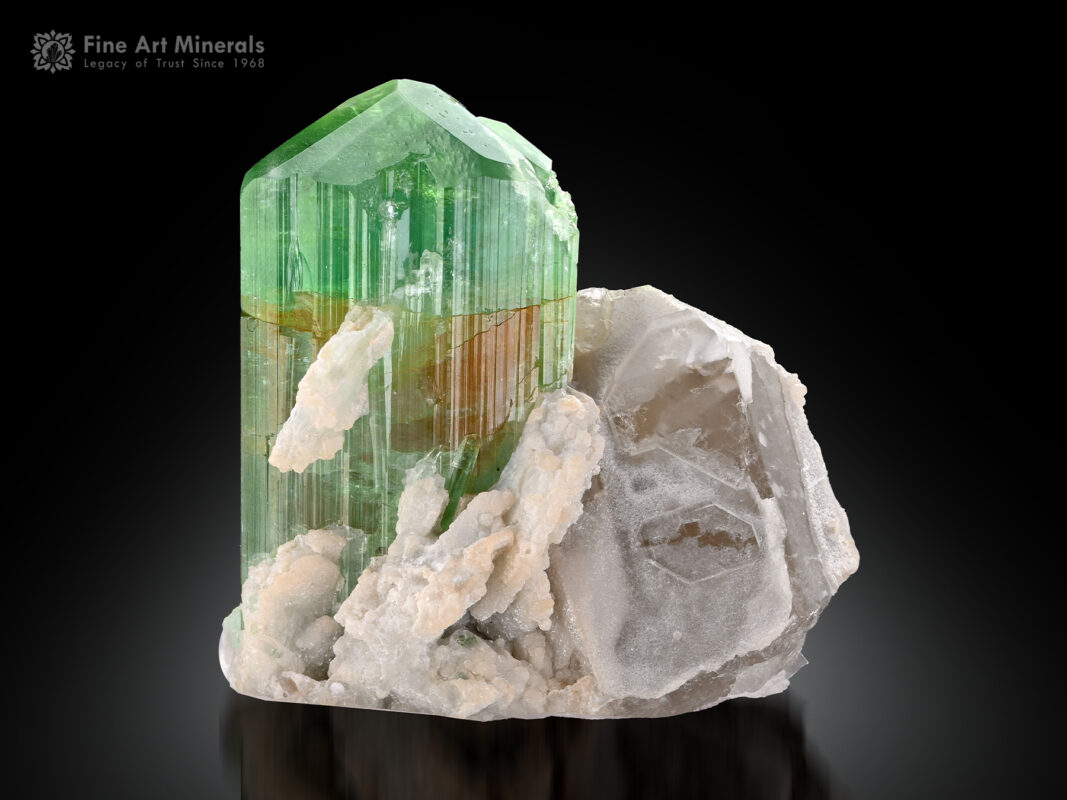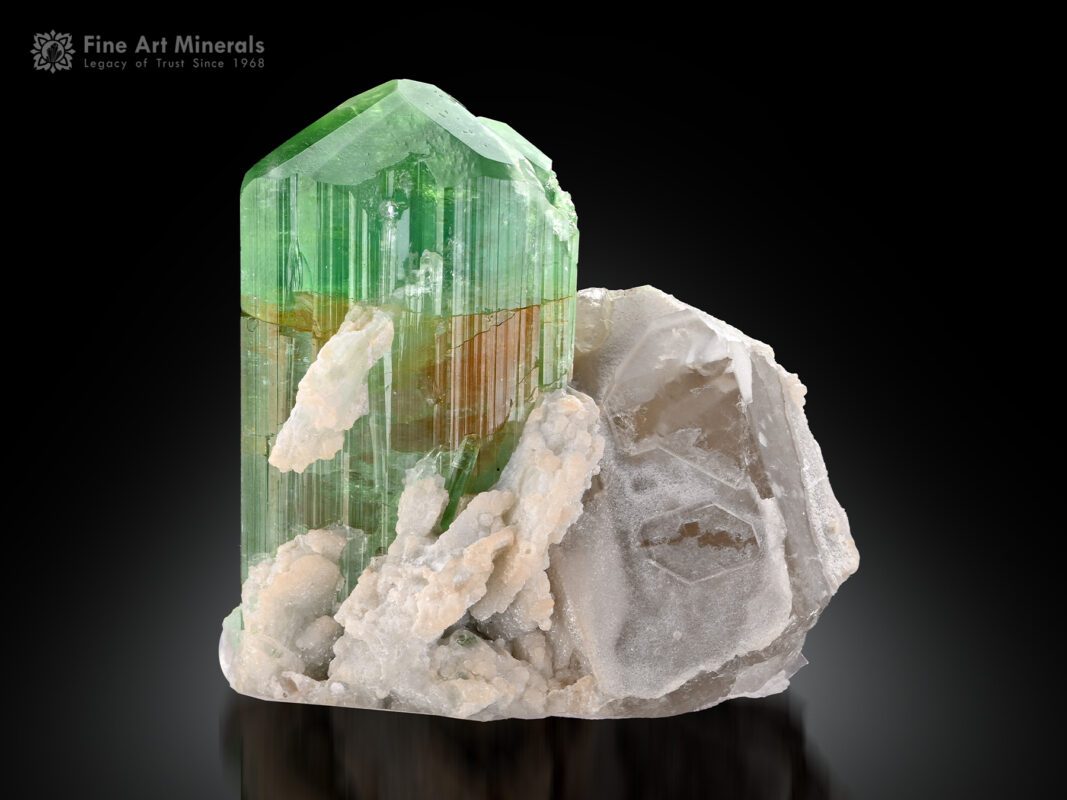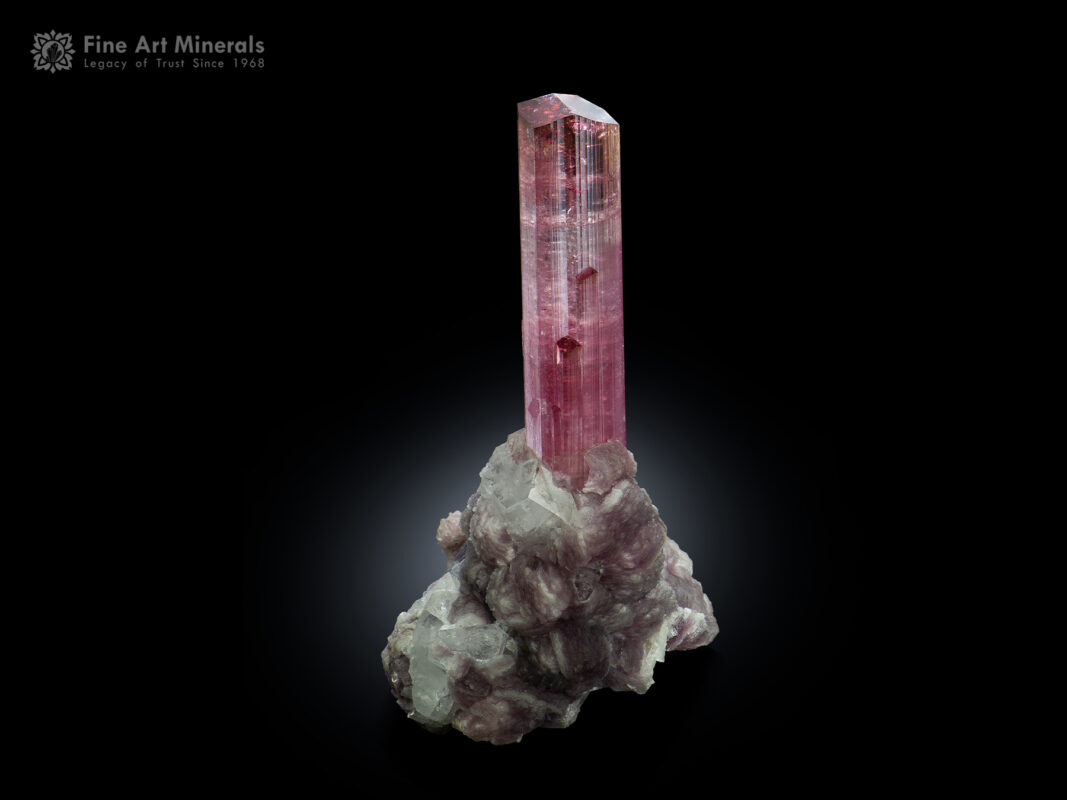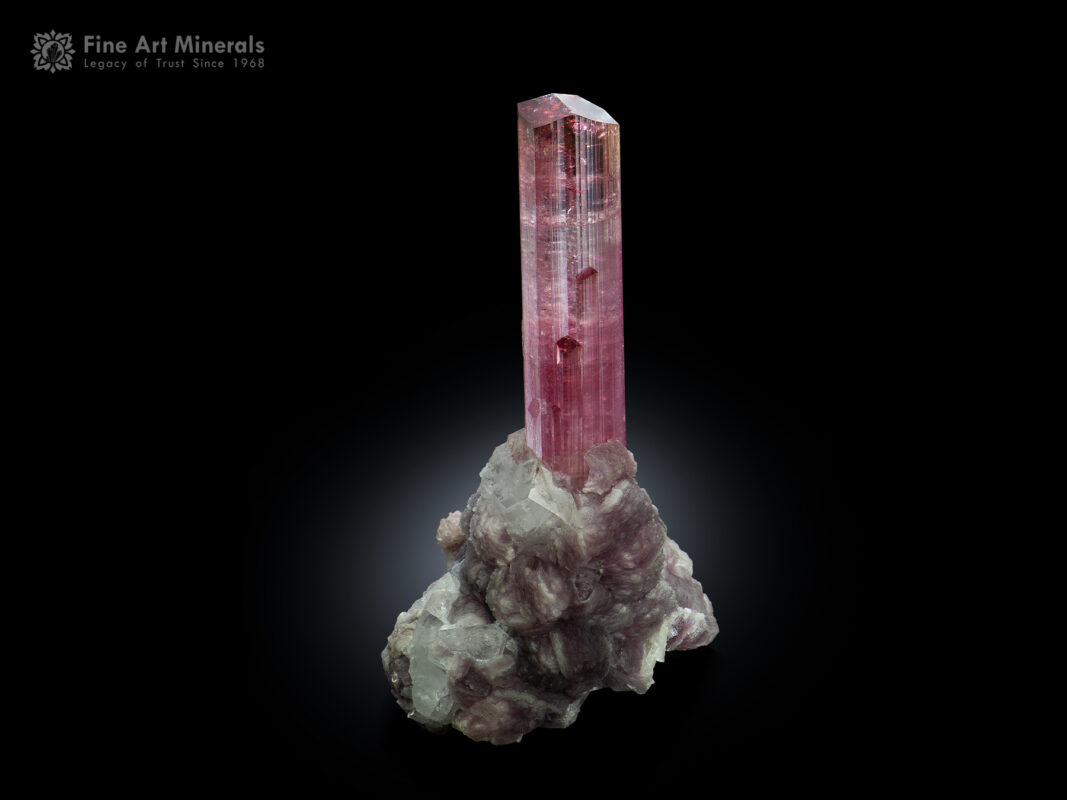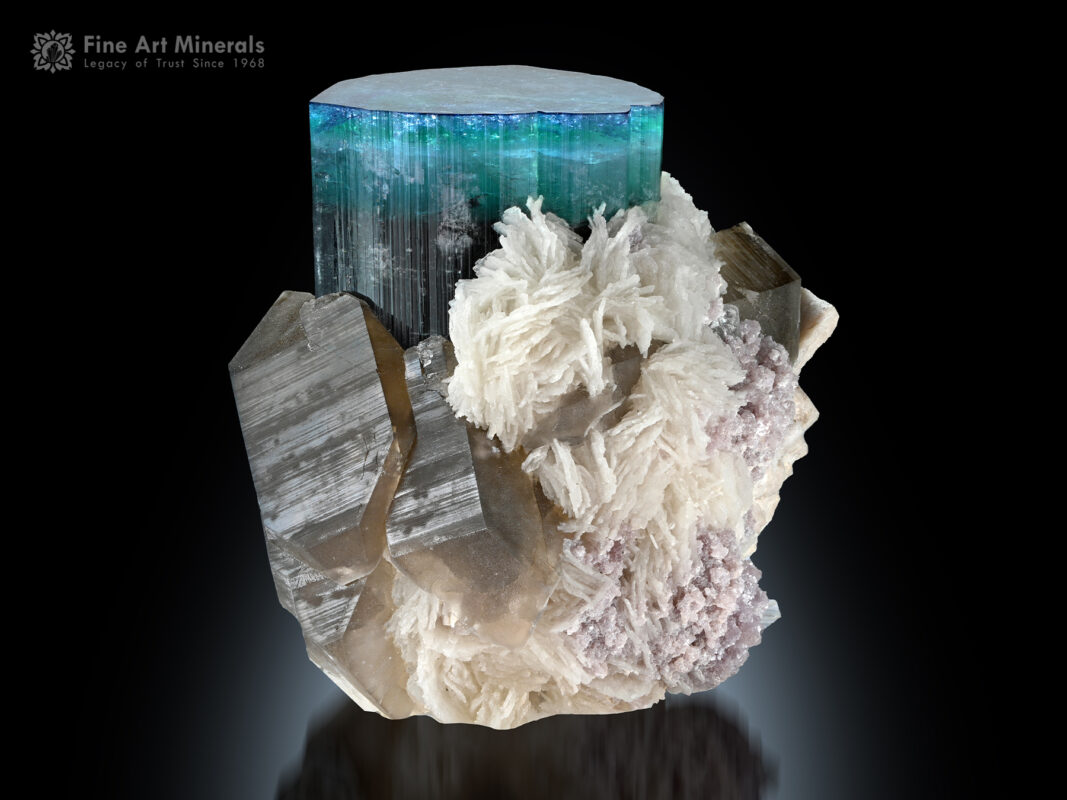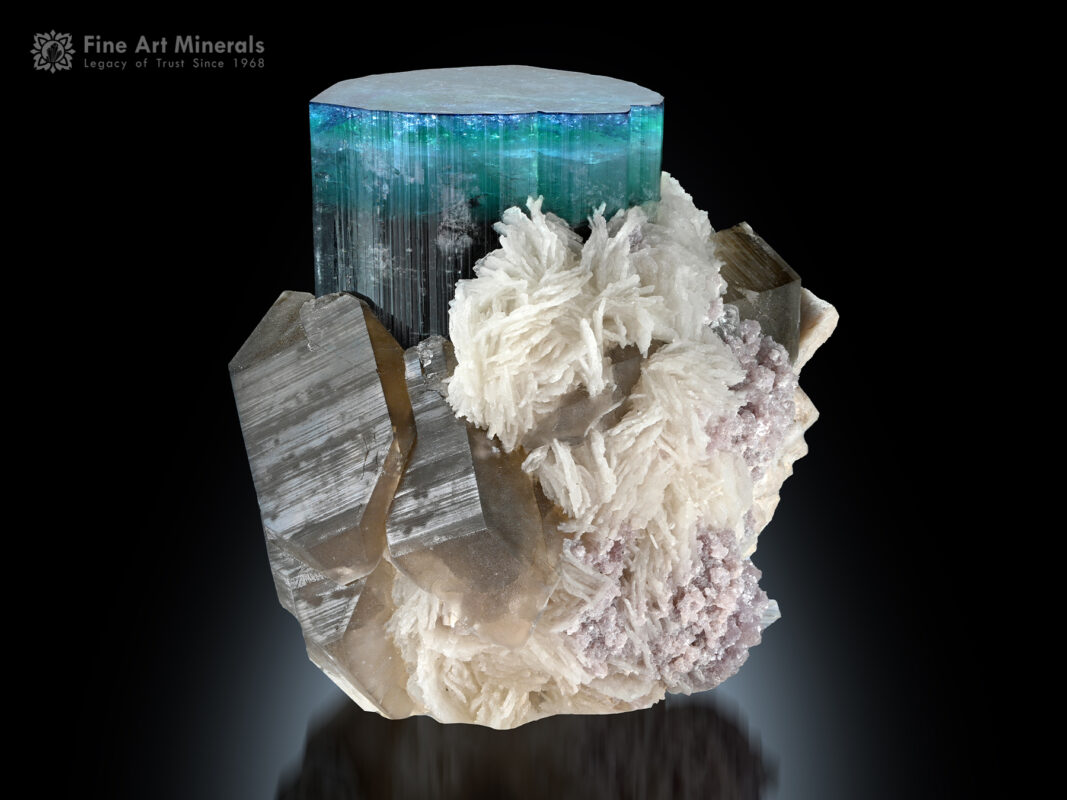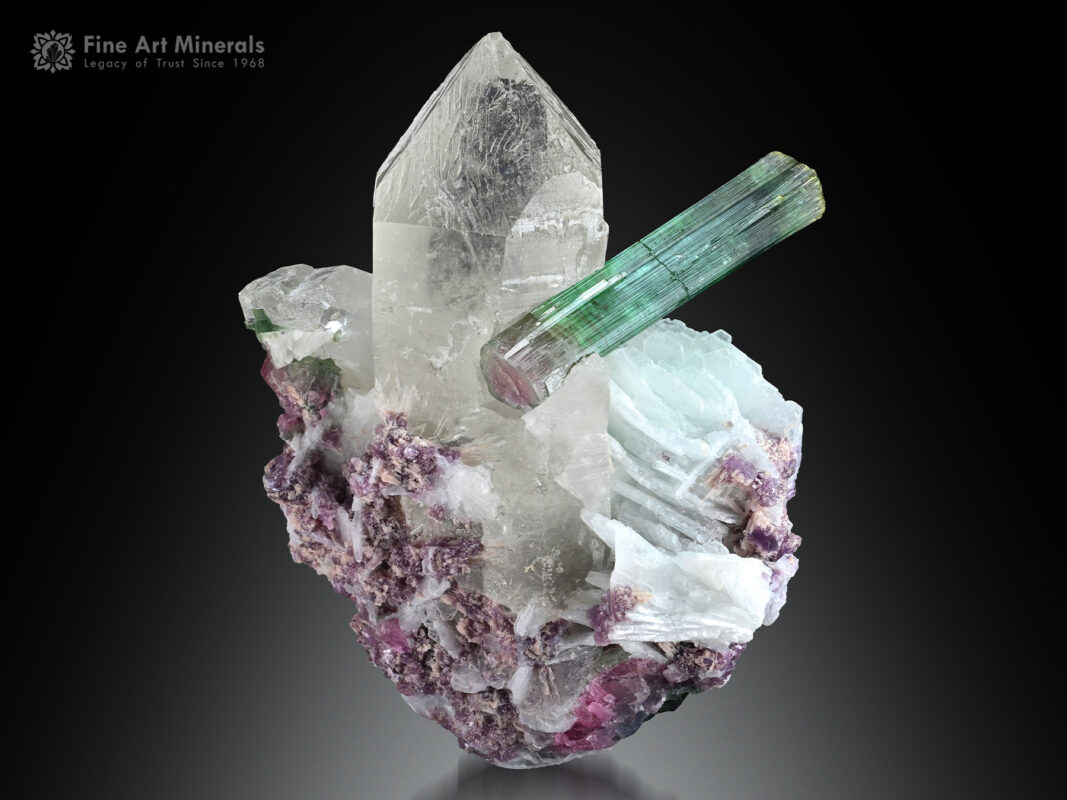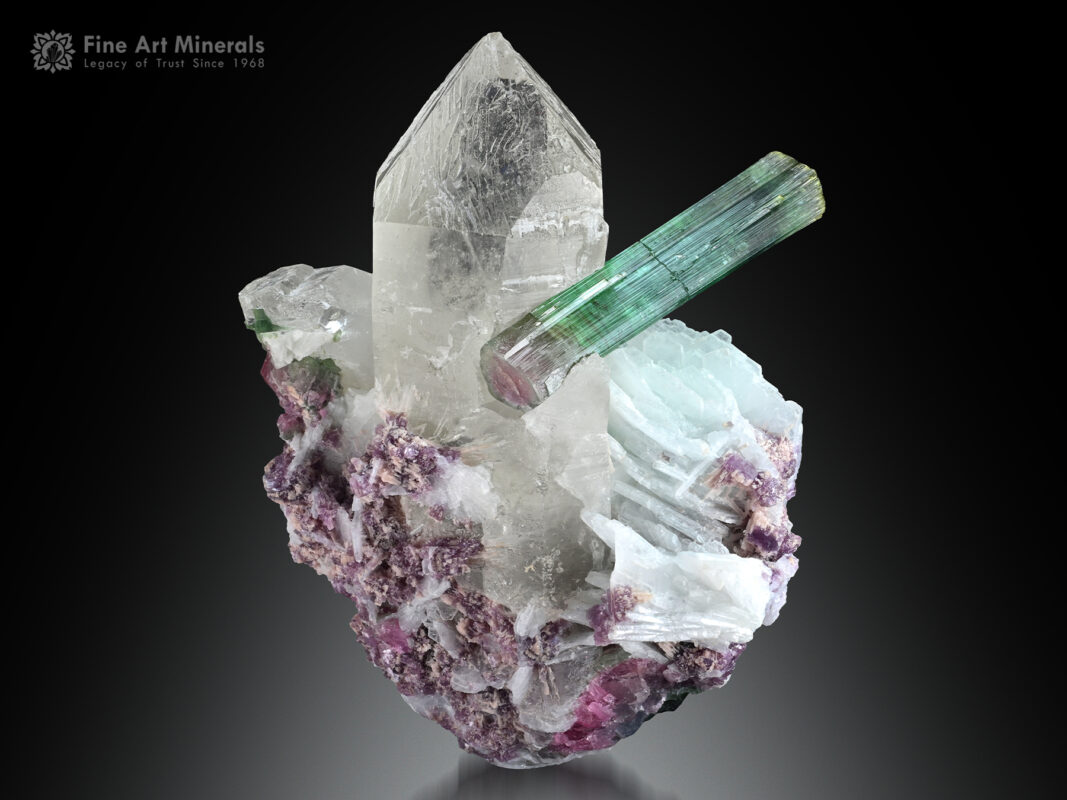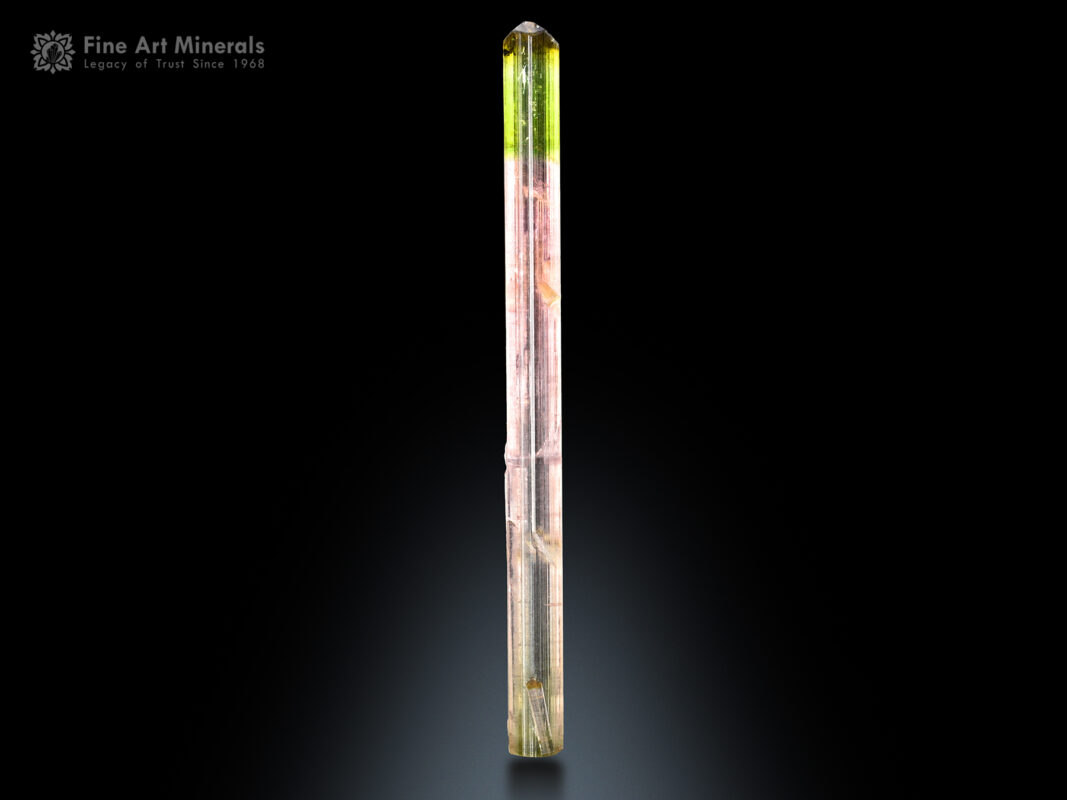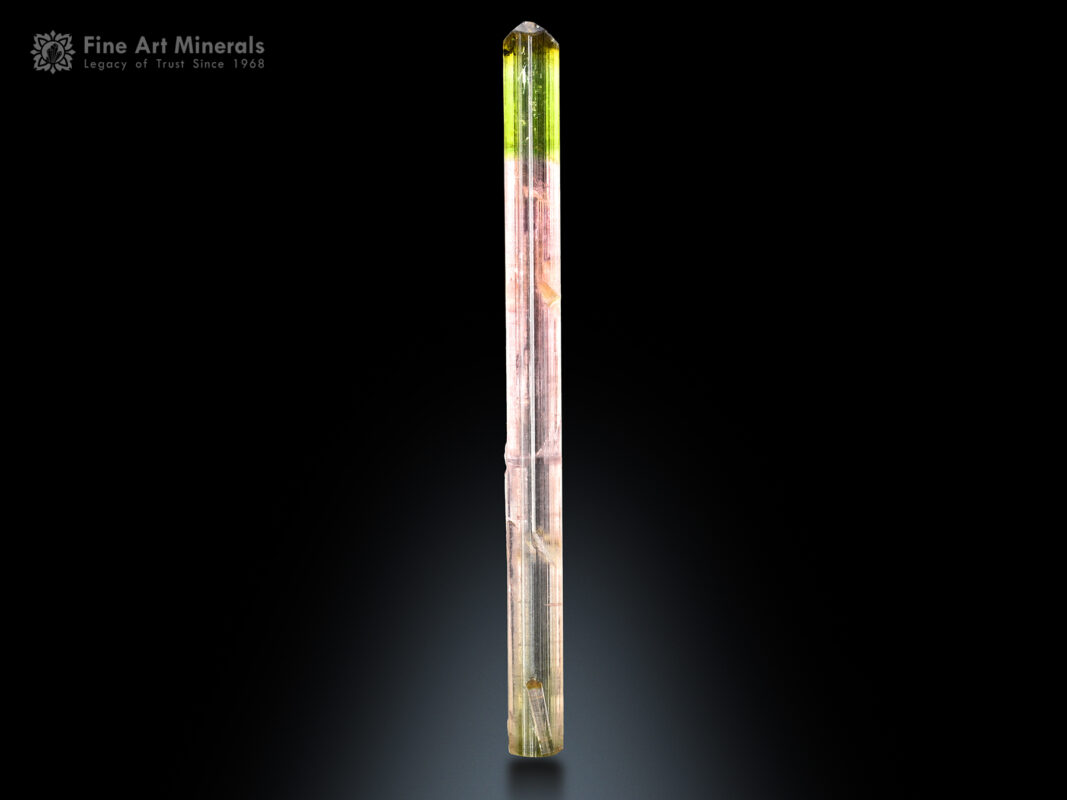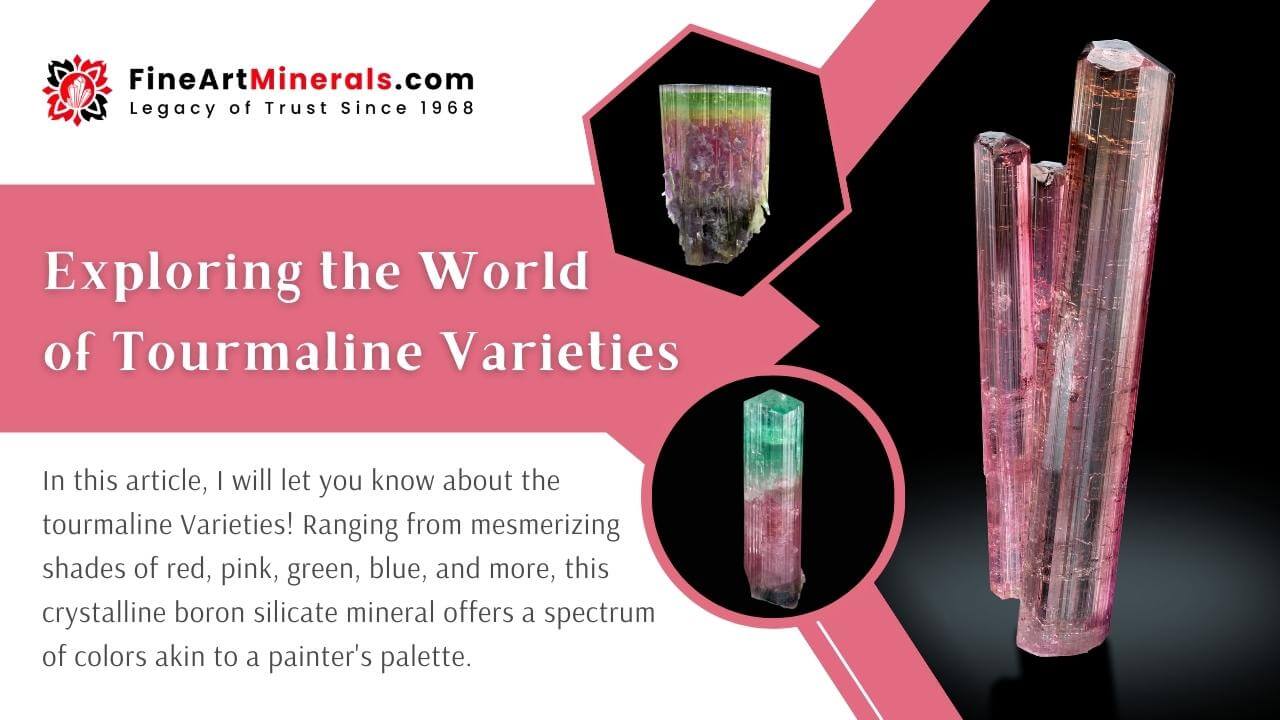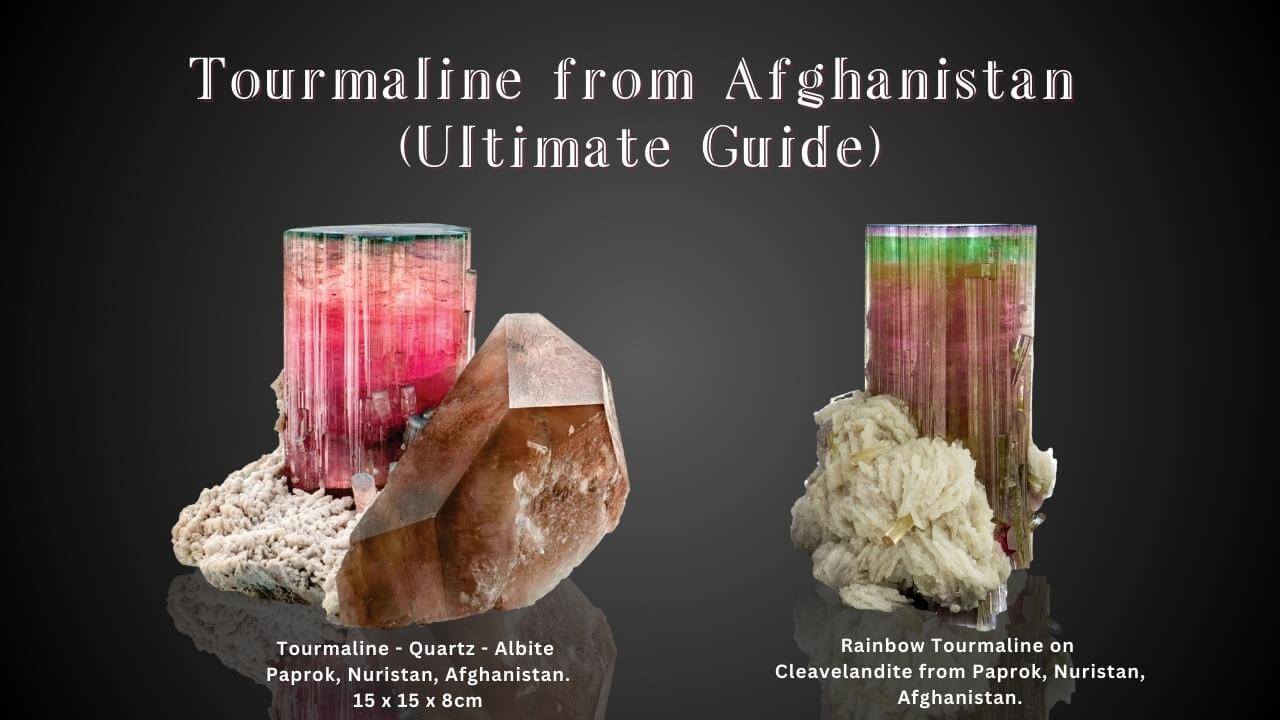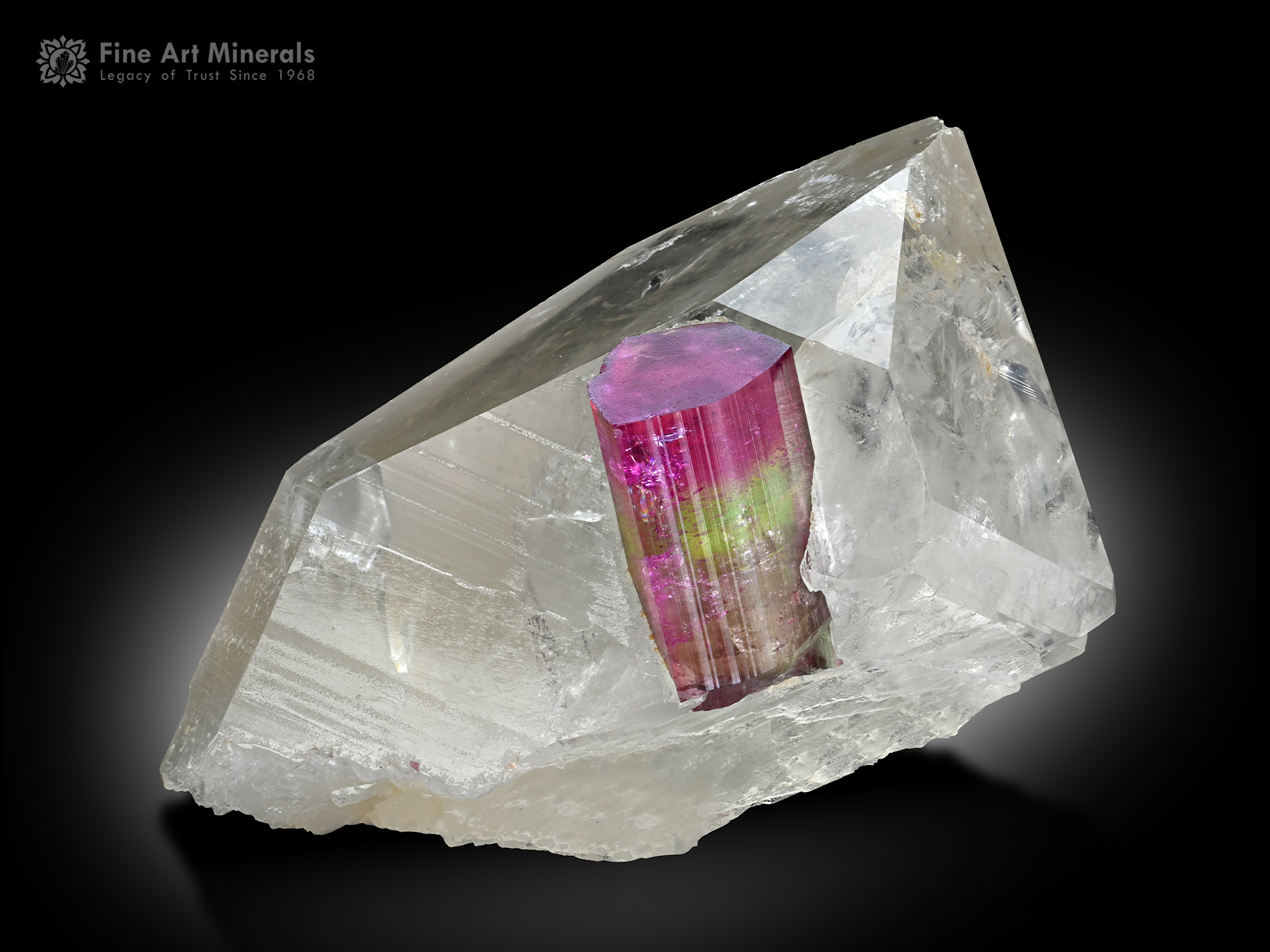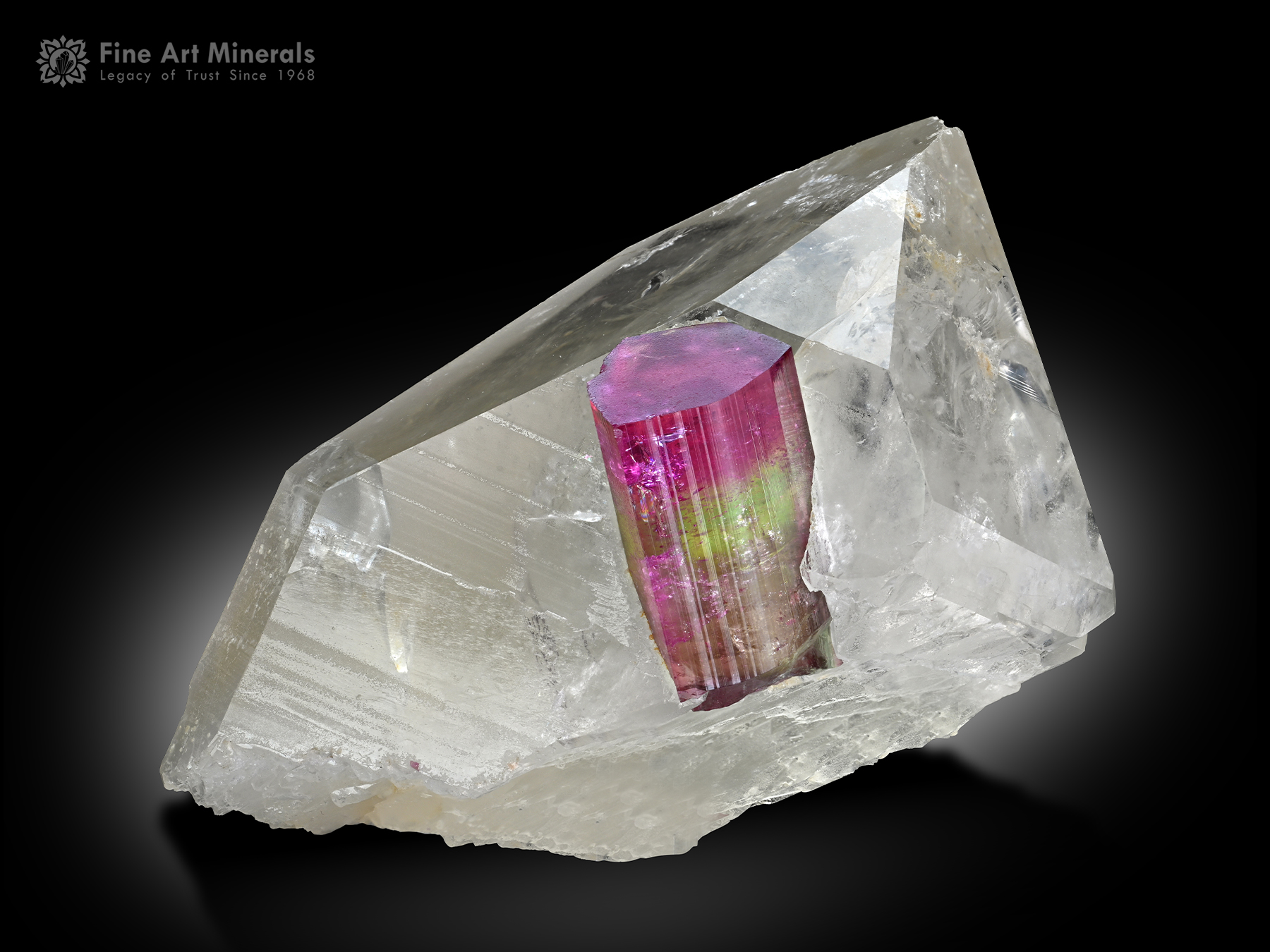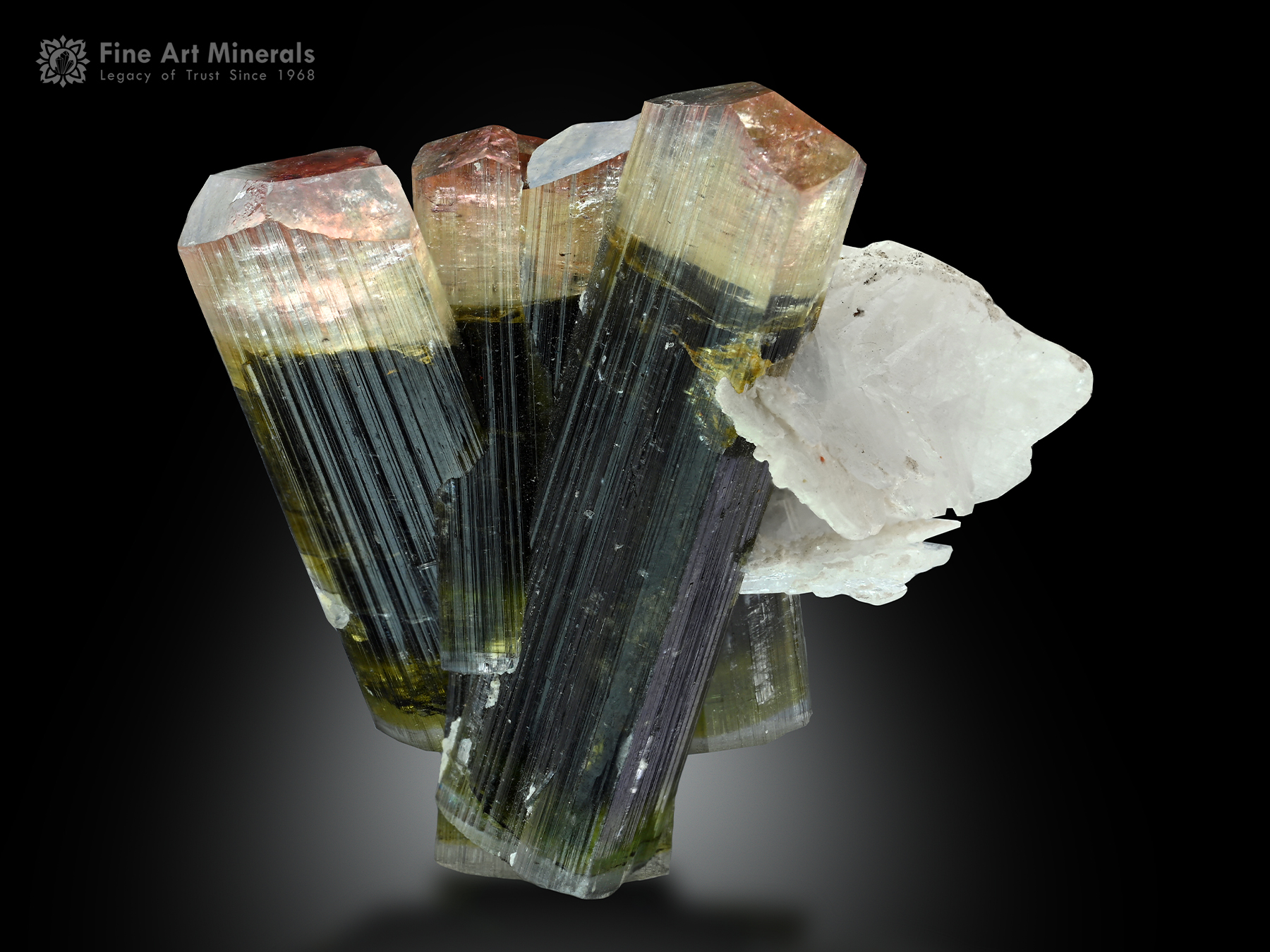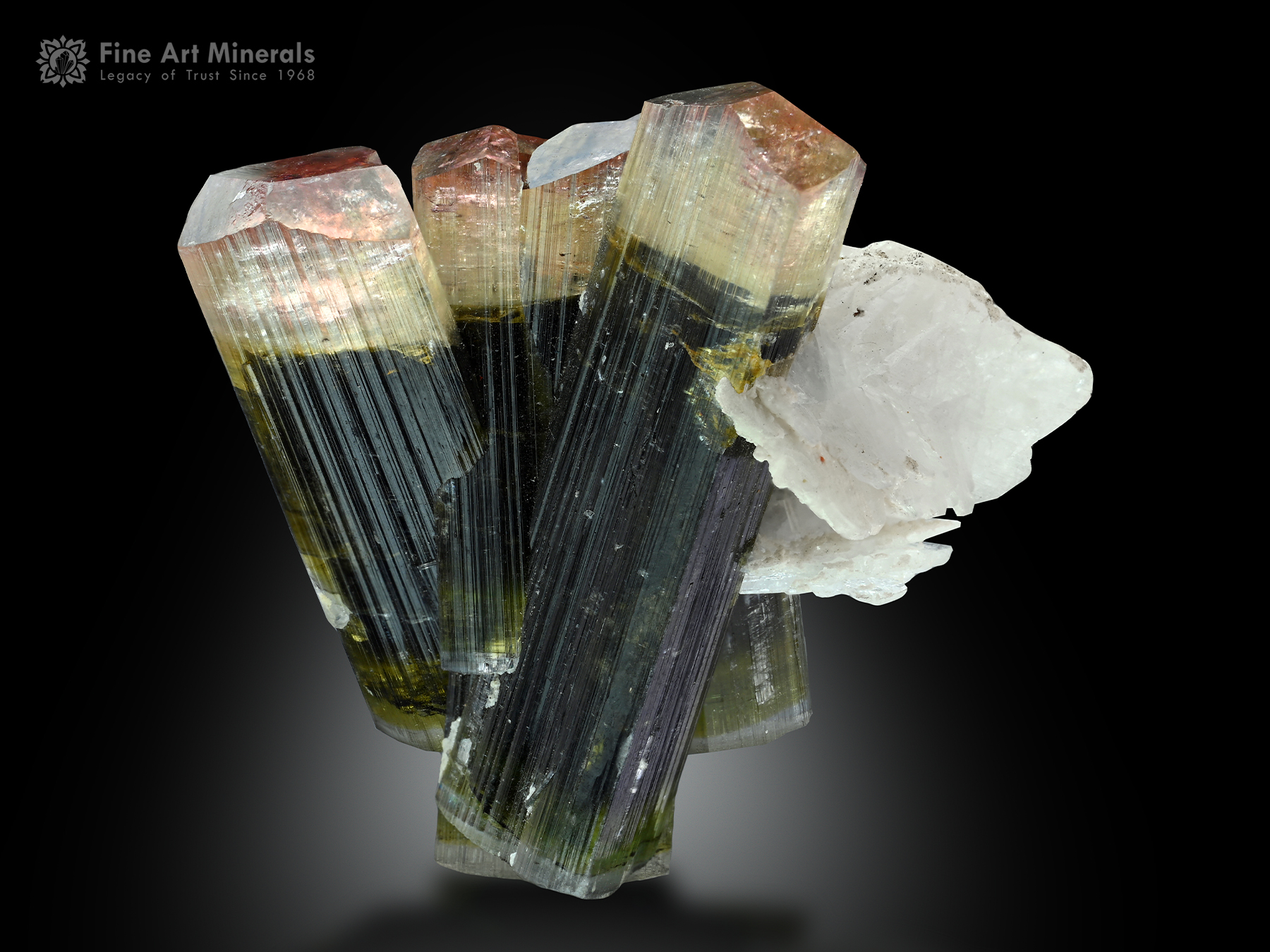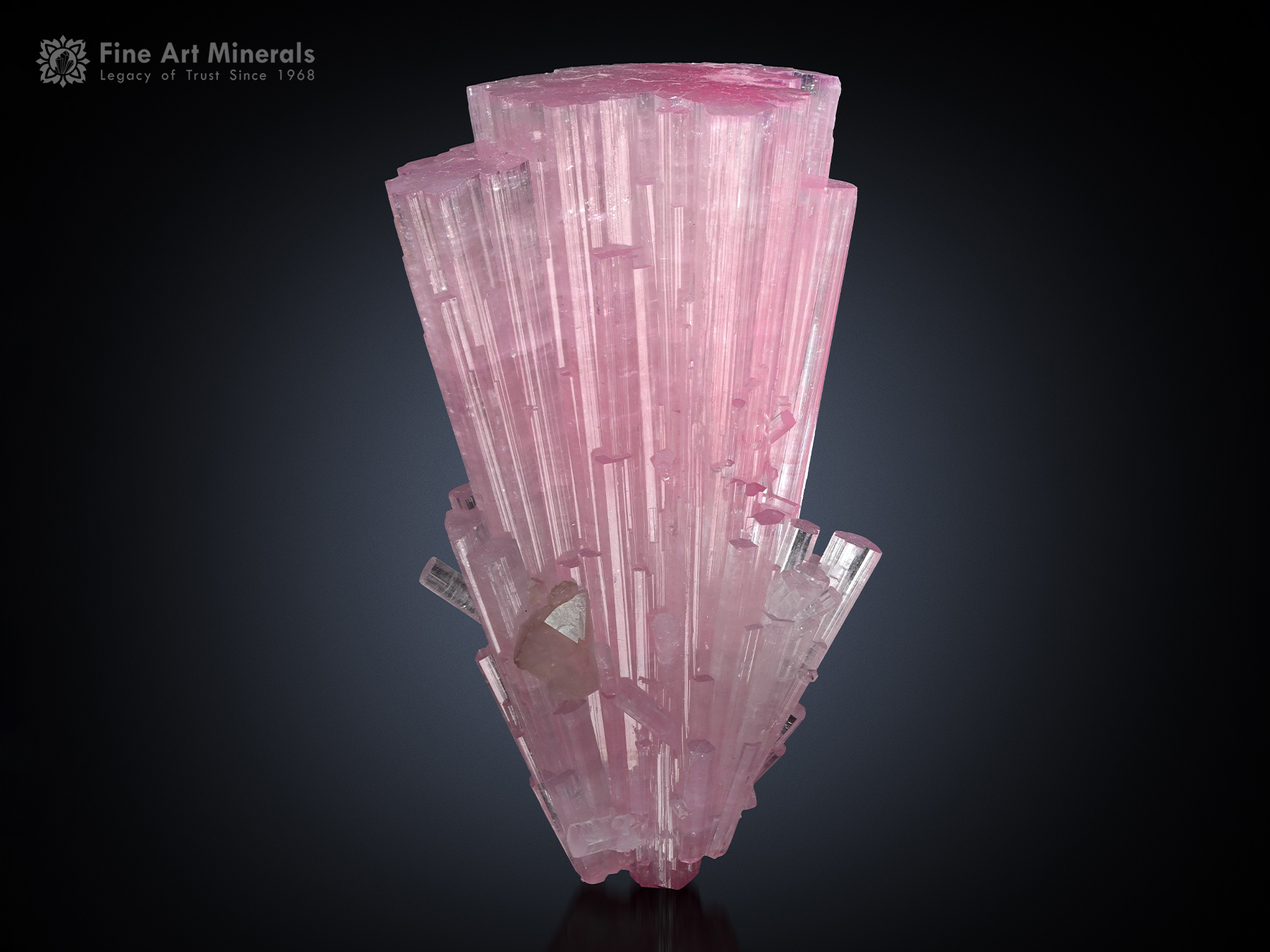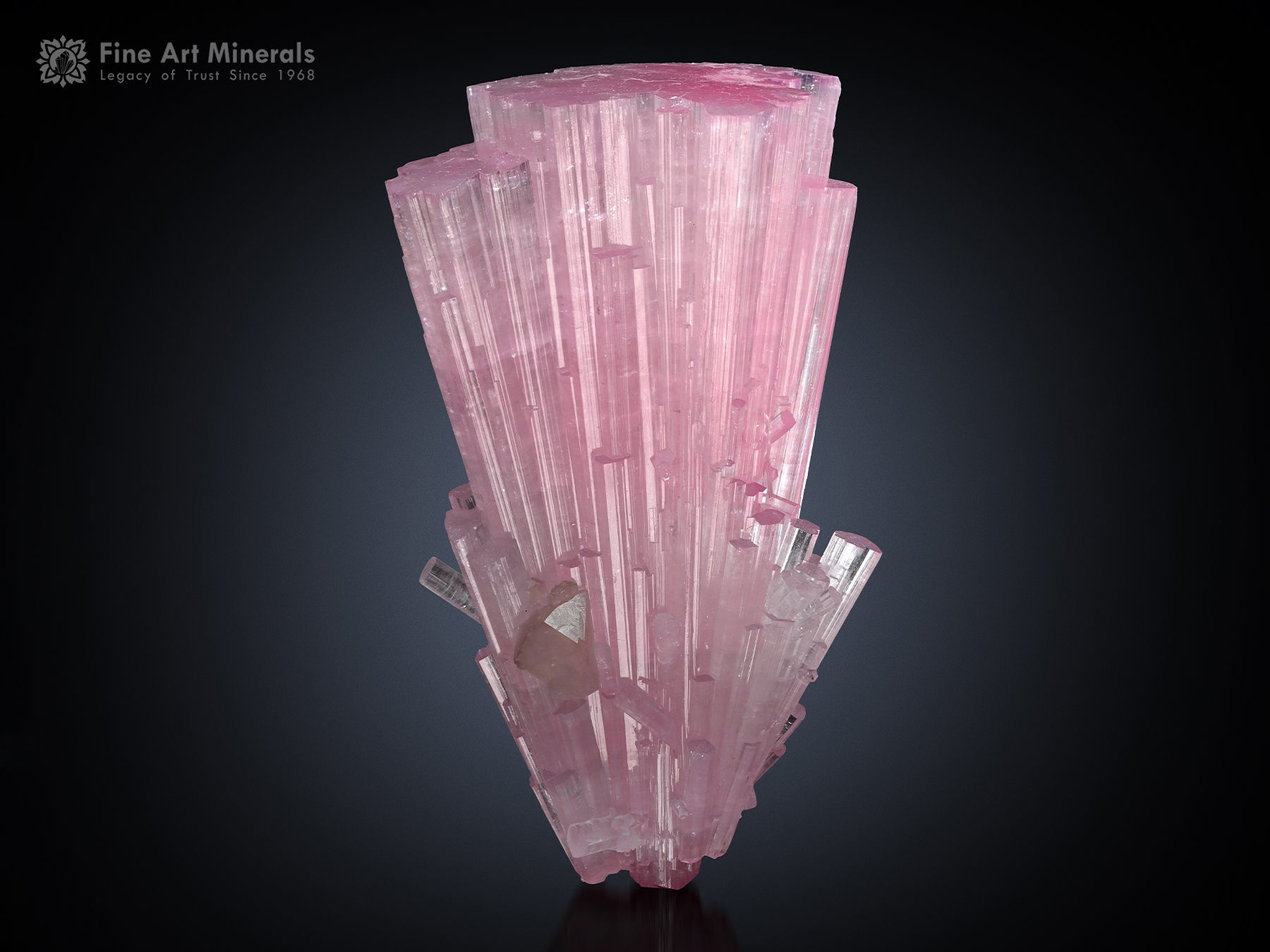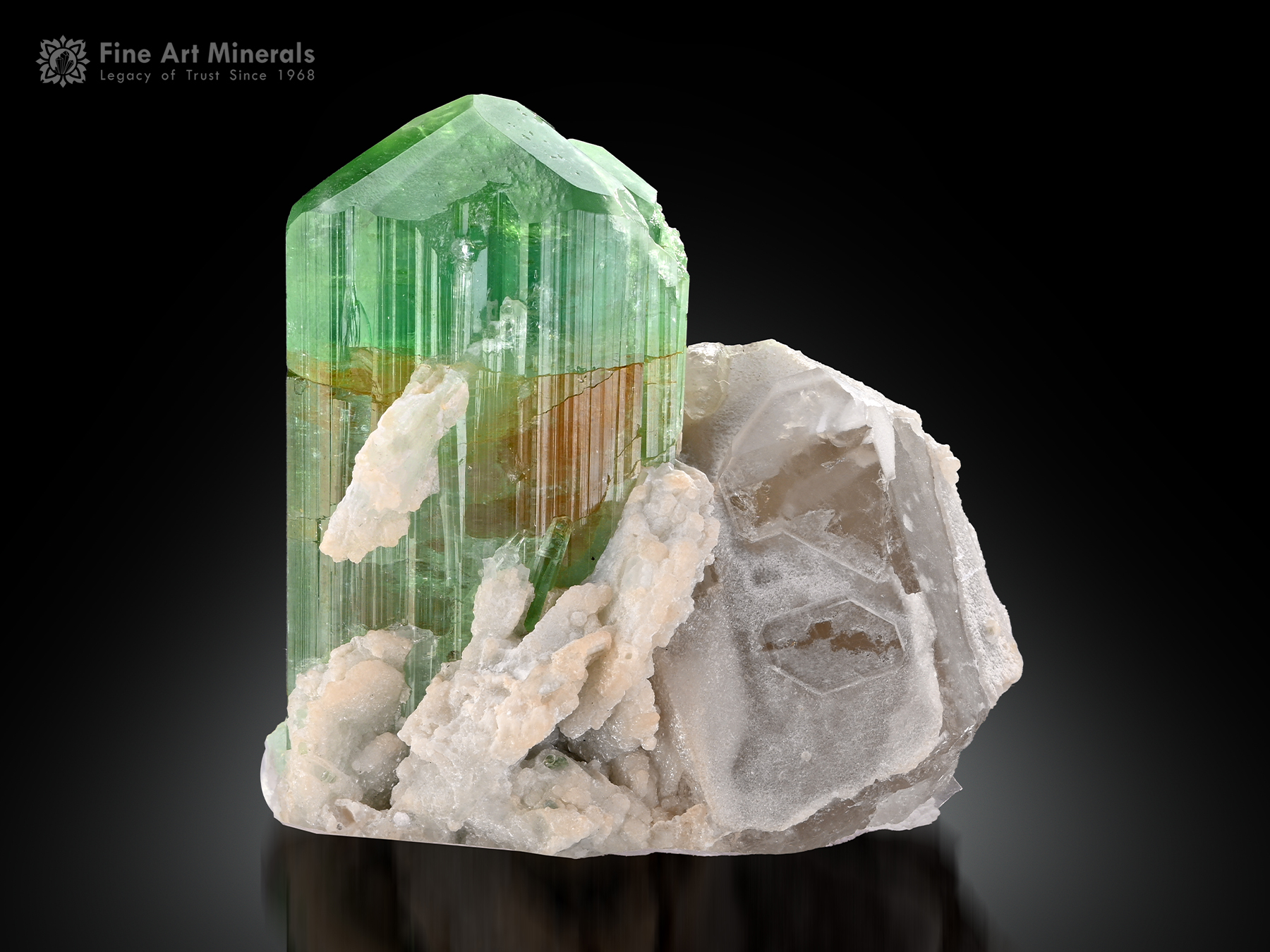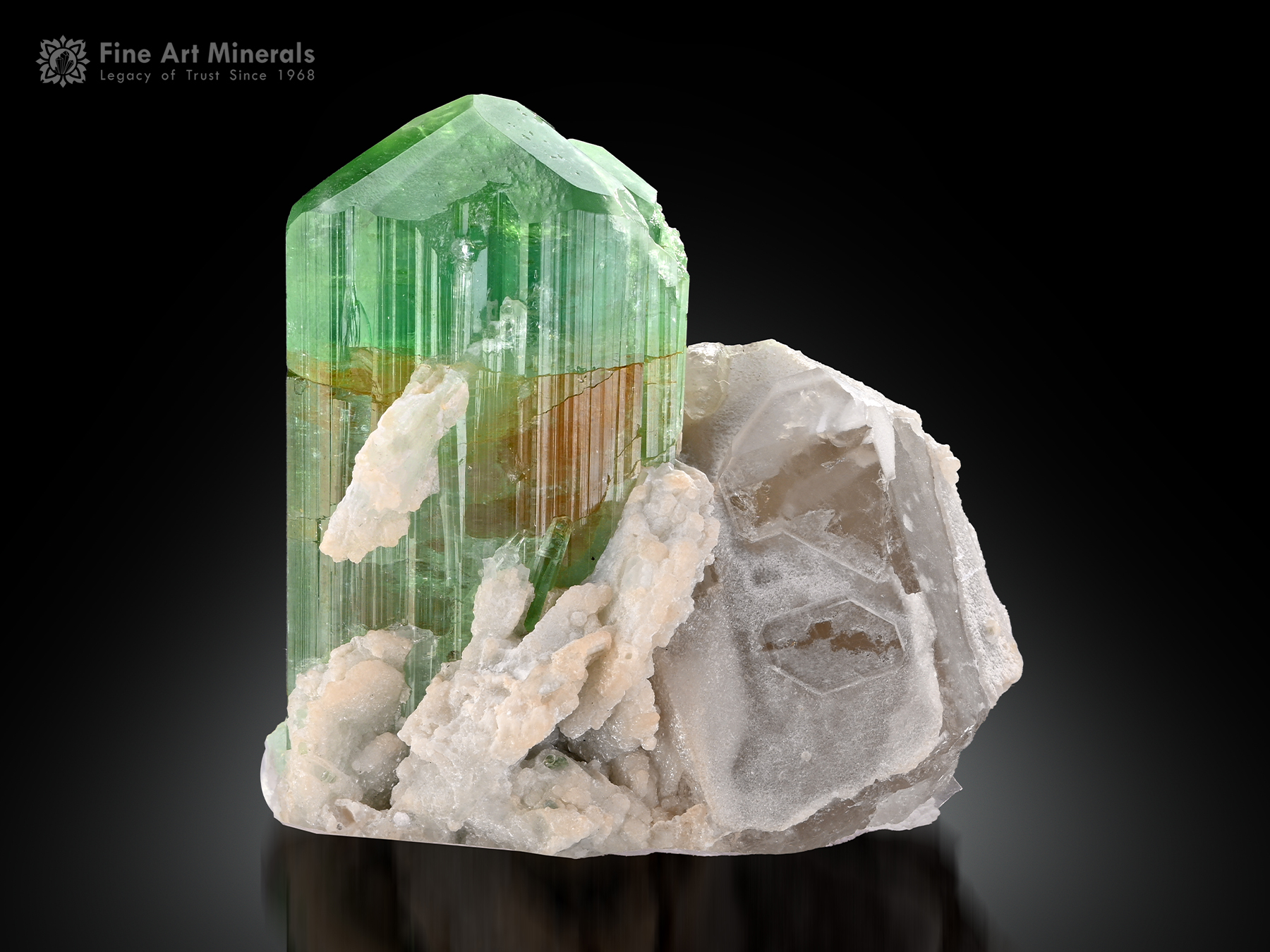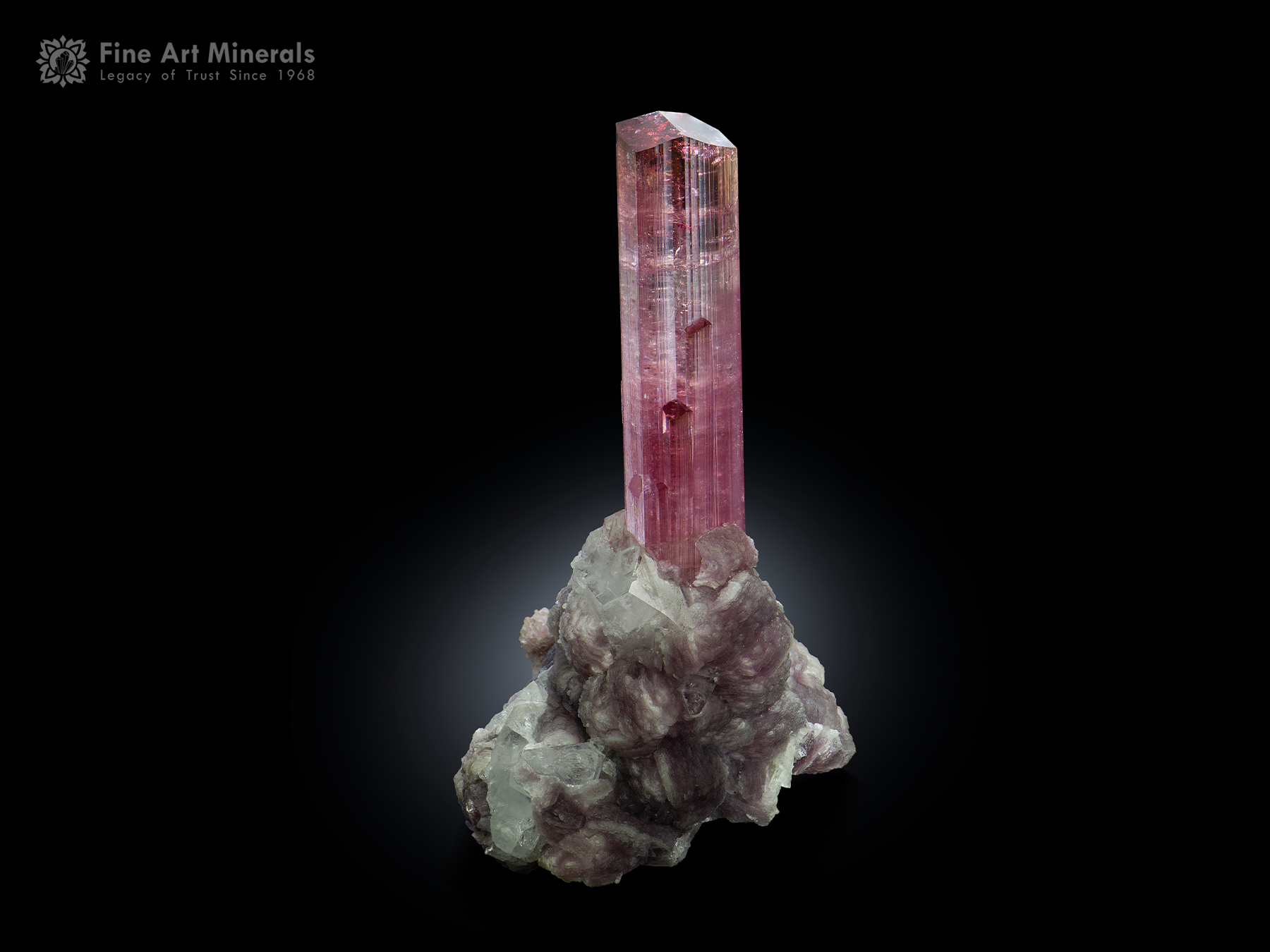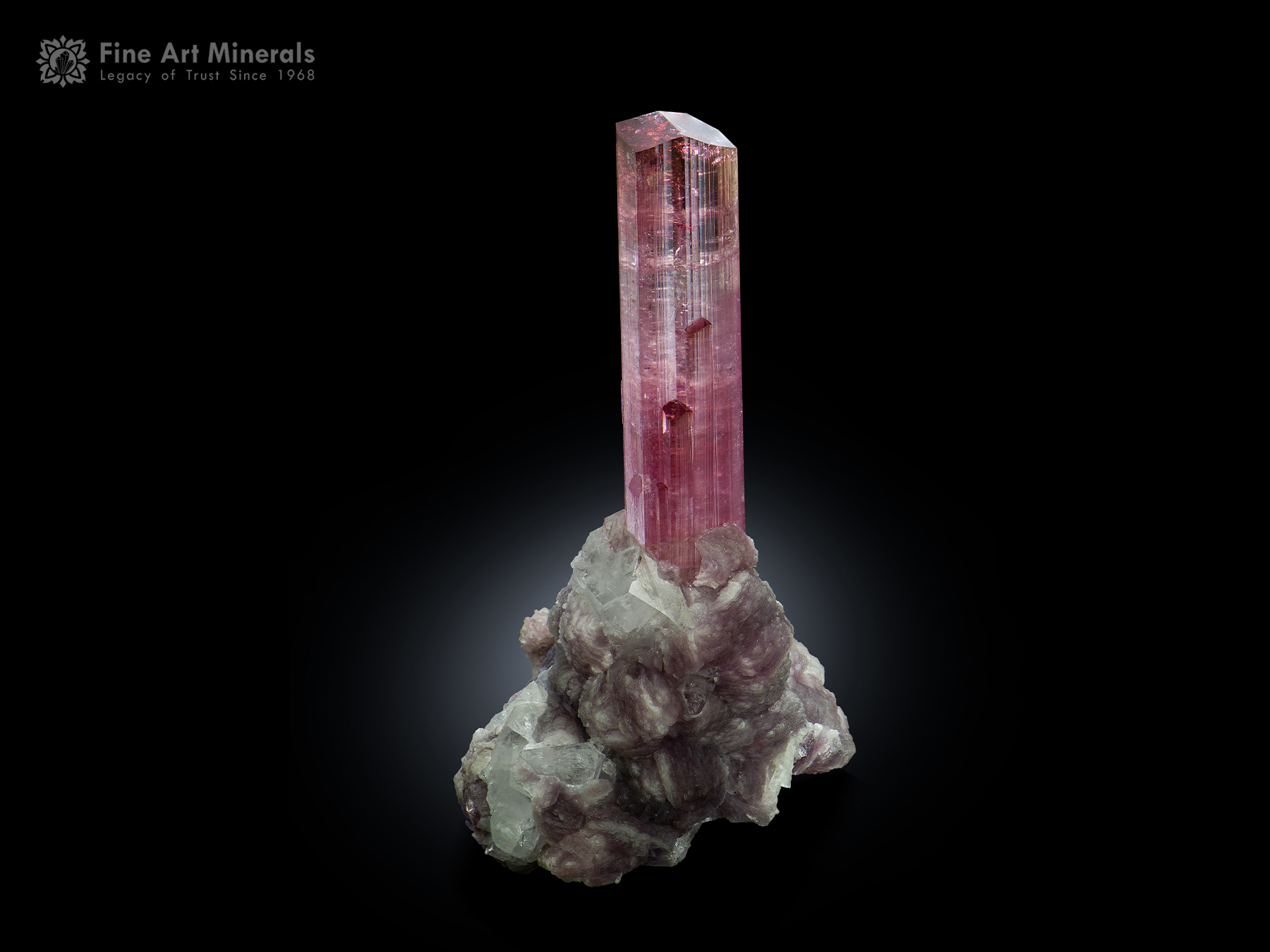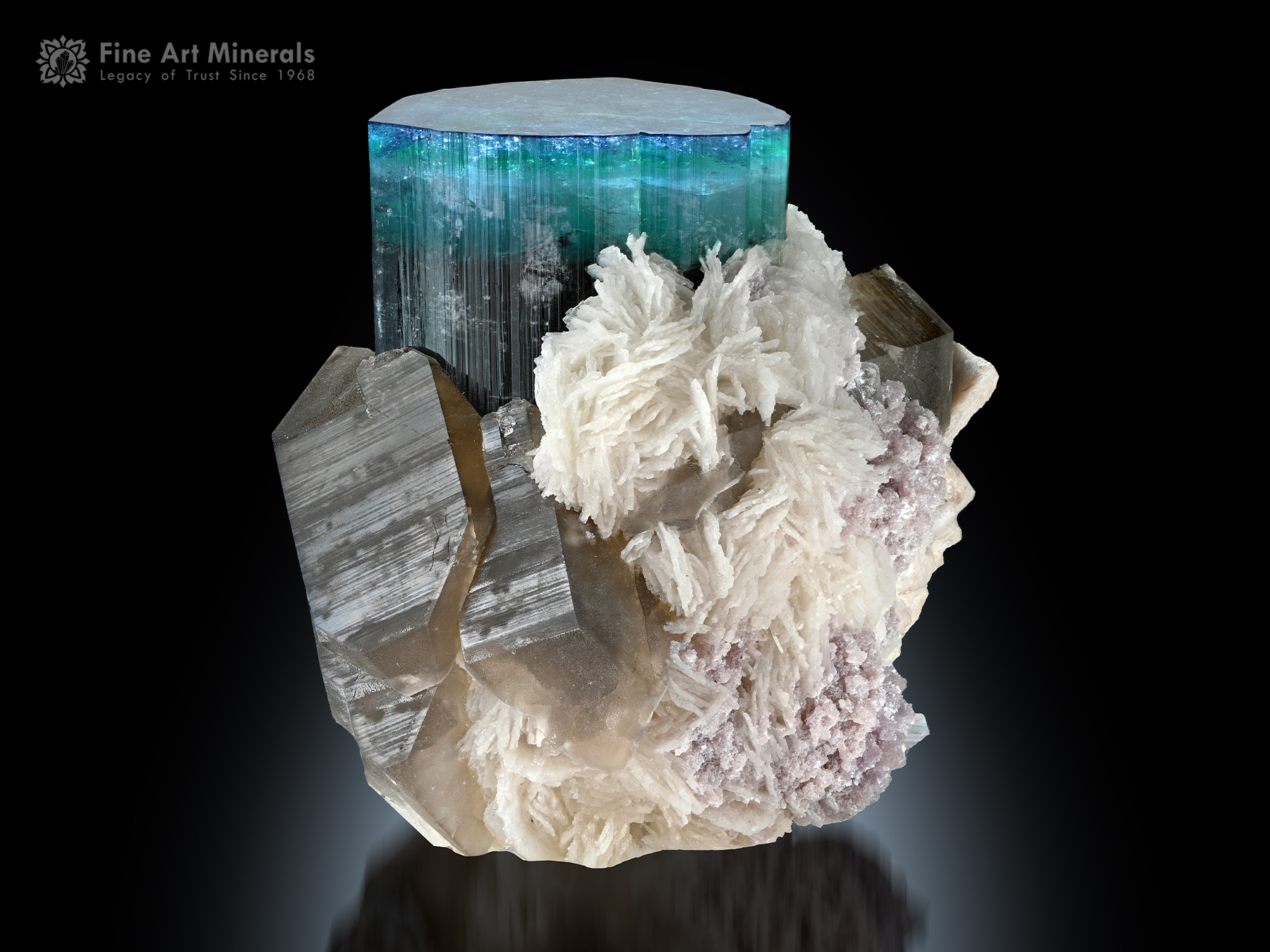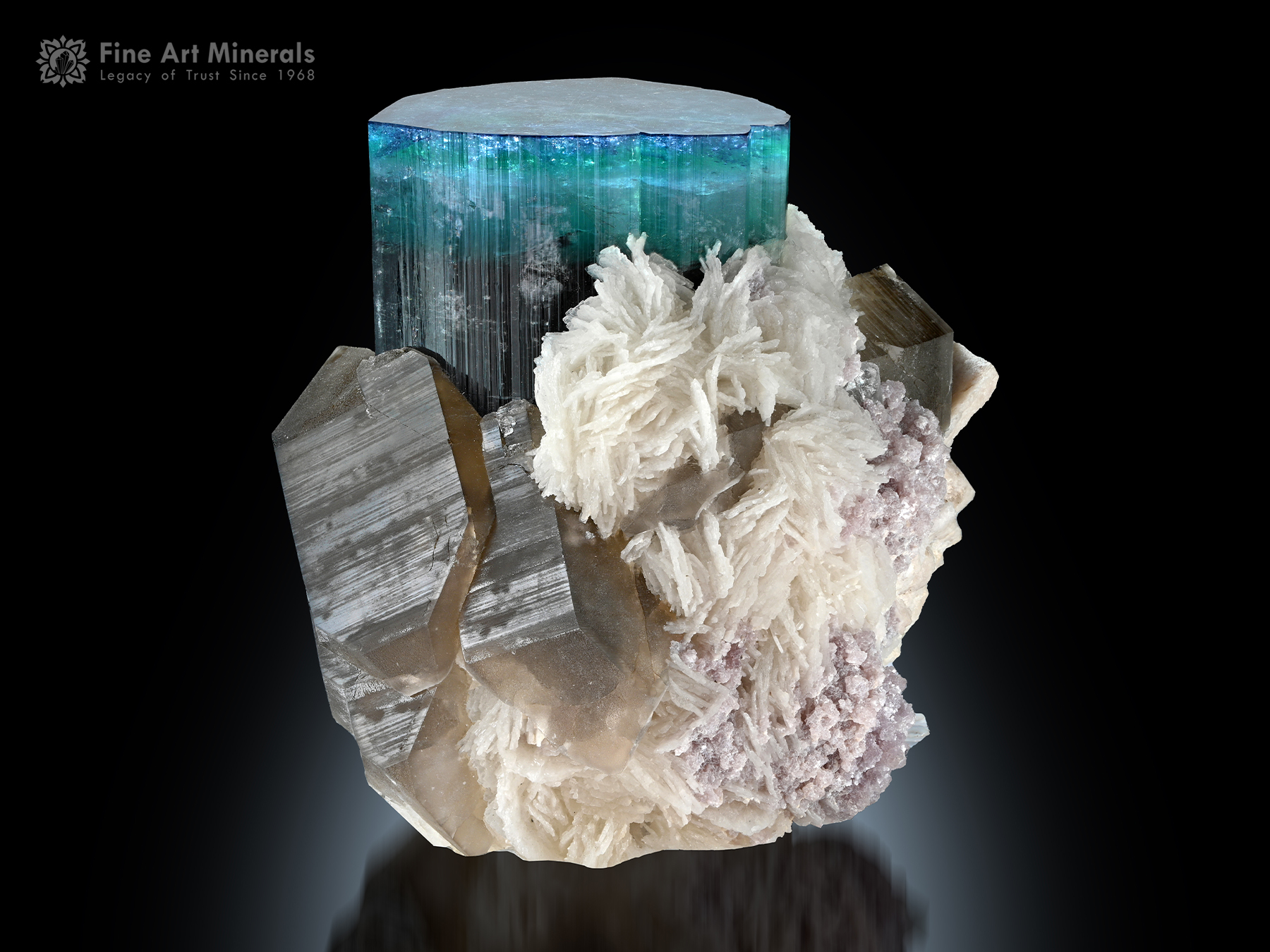Welcome to the mesmerizing world of Tourmaline from Pakistan, a captivating blog that promises to take you on an awe-inspiring journey through the depths of Pakistan’s tourmaline treasures.
Here, we will unravel the secrets behind this precious mineral found in Pakistan’s heart of South Asia.
Journey with us as we delve into the depths of Pakistan’s tourmaline deposits, uncovering the secrets of their formation, the art of extraction, and the cultural significance that has endured through the centuries.
Join us as we unravel the geological marvels, meet the artisans who breathe life into raw stones, and understand why this mineral is cherished in the hearts of gem enthusiasts and collectors alike.
Whether you are a passionate minerals lover, a history enthusiast, or simply curious about the beauty concealed beneath the surface, this journey promises to be enthralling.
So, let us set forth into the glowing world of tourmaline from Pakistan, where the brilliance of nature’s finest craftsmanship awaits to be discovered.
Table of Contents
ToggleWhat is Tourmaline and What is its Meaning?
Tourmaline, a captivating mineral of rich history and varied hues, holds a unique place in Pakistan’s mineral treasure trove. Tourmaline from Pakistan is a treasure cherished both locally and globally.
The gem’s diverse range, from vivid greens to deep pinks, mirrors Pakistan’s landscapes. Tourmaline from Pakistan stands as a testament to the country’s geological marvels and its contribution to the world of precious minerals
The name tourmaline is derived from the Sinhalese word turmoil, meaning mixed colors, which perfectly describes this gem’s mesmerizing hues.
Tourmaline holds particular importance and symbolism. It is believed to possess powerful metaphysical properties that bring positive energy and offer protection against negativity.
Tourmaline from Pakistan
Pakistani Tourmaline is a geological wonder shaped by the country’s diverse landscape. Found in the northern regions, such as Gilgit-Baltistan, Hunza, and Skardu, the mineral formation is influenced by the Himalayan mountain range.
The gem’s captivating hues, including green, pink, and blue, originate from trace elements within Pakistan’s unique geological composition.
Types of Tourmaline Found in Pakistan
Pakistan is a mineral treasure trove, hosting a diverse range of Tourmaline varieties in its northern regions.
Each variety sounds with the landscapes it’s born from, encapsulating the essence of Pakistan’s natural beauty and cultural significance.
These gems are more than minerals; they’re the symbol of the land they come from.
So, here we listed some of the minerals that are mostly found and mined in Pakistan:
1. Green Tourmaline from Pakistan
Found in Skardu and Hunza, green Tourmaline captures the lush landscapes of the area. Its color reflects the surrounding valleys, symbolizing growth, vibrancy, and harmony.
2. White Tourmaline from Pakistan
Mined in Gilgit-Baltistan, white Tourmaline symbolizes purity and clarity. The region’s pure mountains seem to inspire this variety, making it a symbol of purity and spiritual growth.
3. Black Tourmaline from Pakistan
Emerging from the same areas as white Tourmaline, black Tourmaline, or Schorl, is renowned for its grounding and protective properties. It mirrors the strength of the rough territory.
4. Blue Tourmaline from Pakistan
The region of Skardu unveils blue Tourmaline, similar to the calm blue skies above the mountains. Its calming hue evokes calmness and balance, mirroring the region’s peaceful beauty.
Formation Of Tourmaline
Pakistan’s diverse landscapes, from towering mountains to mineral-rich valleys, organize these stages, resulting in breathtaking Tourmaline creations.
Unveiling nature’s artistry, the minerals mirror the nation’s geological wonder and gemological legacy.
The creation of Tourmaline minerals is a complex journey that unfolds in various stages within Pakistan’s rich geological landscape.
1. Igneous Stage
Begins with molten rock cooling to form pegmatites—crystalline formations where Tourmaline originates. Pakistan’s mountains, like the Himalayas, foster such geological settings.
2. Hydrothermal Stage
Mineral-rich fluids percolate through fractures, introducing Tourmaline-forming elements. Gilgit-Baltistan’s hydrothermal veins contribute to Pakistan’s Tourmaline diversity.
3. Metamorphic Stage
Earth’s forces reshape rock structures, affecting Tourmaline’s growth. Regions like Skardu Valley offer glimpses of this dynamic transformation.
4. Crystallization and Growth
Over millions of years, minerals crystallize and grow, crafting the exquisite mineral. The intricate balance of elements shapes Pakistan’s colorful Tourmaline variants.
Mining Techniques and Challenges
Mining Tourmaline in Pakistan is a careful process that combines traditional and modern techniques.
Miners in regions like Gilgit-Baltistan use hand tools to carefully extract the mineral from pegmatite veins and hydrothermal deposits, preserving their integrity.
While these techniques maintain authenticity, environmental and social challenges arise. Environmental concerns arise due to the potential disturbance of local ecosystems.
Moreover, social issues like miners’ safety and fair wages highlight the need for sustainable practices in Pakistan’s mineral industry.
Striking a balance between economic benefits and responsible mining remains a crucial struggle in preserving both the beauty of Tourmaline and the well-being of those involved.
Quality and Grading of Tourmaline
Tourmaline’s quality and value in Pakistan’s minerals market are determined by various essential factors. These include color intensity, clarity, cut, and size.
The rarer and more vivid the color, along with minimal inclusions, the higher the value. Precise cuts that maximize brilliance contribute to a gem’s appeal.
The 4 Cs—color, clarity, cut, and carat weight—play a vital role. For instance, a rich green Tourmaline with exceptional clarity and a well-proportioned cut will be highly graded and valued.
Pakistan’s gemstone market attaches to these standards, ensuring that each piece of Tourmaline upholds its quality, and enhances its significance in the world of gemstones.
Pakistan Tourmaline Prices
Well, talking about the price of tourmaline in Pakistan it varies from clarity, variety, and type. However, the price of tourmaline can start from 20$/carat to 100$/carat and even 1000$/carat.
Polishing and Cutting of Tourmaline
In Pakistan, the art of polishing and cutting Tourmaline minerals is a careful craft. Skilled lapidaries utilize traditional techniques and modern tools to enhance the gem’s inherent beauty.
The process involves shaping raw stones into desired forms while retaining their brilliance and color. Accuracy cutting maximizes light reflection and color display.
Expertise in Pakistan Lapidaries
Pakistan’s lapidaries are value artisans with a deep understanding of Tourmaline’s properties.
Their expertise lies in transforming raw Tourmaline into elegant gemstones. With a blend of traditional craftsmanship and modern techniques, they shape, cut, and polish Tourmaline, enhancing its natural beauty.
Lapidaries in Pakistan are skilled in various cutting styles, from classic to up-to-date, amplifying the gem’s inherent splendor.
This expertise not only adds value to the gemstone industry but also showcases Pakistan’s legacy as a hub for lapidary craftsmanship.
Through their hands, Tourmaline from Pakistan transcends into works of art, embodying the nation’s rich legacy and mastery in gemstone transformation.
Uses of Tourmaline
Pakistani Tourmaline finds diverse applications that reflect both its aesthetic charm and cultural significance.
The gemstone graces jewelry, symbolizing beauty and luxury. From necklaces to rings, artisans embed Tourmaline in intricate designs that echo the nation’s artistic heritage.
In Pakistan’s rich history, Tourmaline has beautiful noble jewelry and artifacts, signifying power and opulence.
The gem’s mesmerizing colors have cultural symbolism, embodying emotions and energies. Traditional healers even attribute metaphysical properties to Tourmaline.
Contemporary artistry also embraces Pakistani Tourmaline. Its vivid hues enhance decorative pieces and sculptures, echoing the country’s artistic vibrancy.
From historic significance to modern artistry, Tourmaline continues to enchant and reflect Pakistan’s gemological and cultural heritage.
Where is tourmaline found in Pakistan?
Tourmaline’s treasure in Pakistan is unveiled in various regions, each a testament to the nation’s geological marvels.
These locations, amid Pakistan’s breathtaking landscapes, are nature’s canvas where Tourmaline’s beauty emerges. They mirror the nation’s geological diversity, adding to the gem’s allure and cultural significance.
- Gilgit-Baltistan
This northern region holds rich deposits, especially Skardu and Hunza, renowned for green and white Tourmaline. Their stunning landscapes inspire the gem’s hues.
2. Azad Kashmir
With deposits in Neelum Valley, Azad Kashmir contributes to Pakistan’s diversity, offering Tourmaline in captivating colors.
3. Khyber Pakhtunkhwa
The Swat Valley in this province yields Tourmaline, a gemstone that echoes the valley’s natural splendor.
4. Balochistan
The province contributes to Pakistan’s gemstone wealth, including Tourmaline, though in smaller quantities.
Which color of tourmaline is expensive in Pakistan?
In Pakistan, the presence of Paraiba Tourmaline is a rarity, making it highly sought after by collectors and connoisseurs.
The scarcity of this unique color, coupled with its mesmerizing beauty, contributes to its premium value in the local gemstone market.
While other Tourmaline colors also hold significance, Paraiba Tourmaline stands out as the pinnacle of rarity and luxury, making it a prized possession for those who appreciate the finest gems that Pakistan has to offer.
Tourmaline Mines in Pakistan
Pakistan’s remarkable mineral heritage is unearthed in various Tourmaline mines across its northern regions, each possessing its charm and significance.
Each mine weaves a story of Pakistan’s geological wonder, bridging the gap between nature’s splendor and human craftsmanship, while preserving the nation’s rich connection to these precious gemstones.
Chappu Mine, Bradla Valley, Shighar, Skardu District, Pakistan
Famed green Tourmaline with quartz and/or rare vittaniemite, Skardu District enriches Pakistan’s mineral heritage, impacting the region’s cultural and economic landscape.
Himalaya Mine in the Shigar Valley of Gilgit Baltistan
The beautiful blue mineral is found in abundance in the Shigar Valley. Source of diverse Tourmaline hues.
Its high-altitude beauty mirrors the gem’s brilliance, contributing to Gilgit-Baltistan’s gemological wealth.
Alchuri Mine in Gilgit
Known for green and pink Tourmaline, showcasing Pakistan’s color diversity. Alchuri’s gems reflect the region’s allure and geological riches.
Shigar and Stak Nala in Gilgit-Baltistan (GB)
Yields various Tourmaline types, embodying Gilgit-Baltistan’s geological treasure and the gem’s pleochroism.
Skardu Mine in Skardu Valley
This is a gemmy, red-colored elbaite tourmaline, a variety of rubellite, crystal from Skardu District, Baltistan, Gilgit-Baltistan, Pakistan.
Enhances Skardu’s legacy with Tourmaline. This mine supports local economies and upholds the gem’s relevance.
Stak Nala, Haramosh Mts., Roundu District, Gilgit-Baltistan, Pakistan
Uncovers gems like pink Tourmaline, showcasing Gilgit-Baltistan’s hidden treasures and geological significance.
Famous Market for Minerals in Pakistan
The southern port city of Karachi was once the biggest market of facet and rough-cut gems in Pakistan. However, after the Soviet invasion of Afghanistan, the gem market shifted to Peshawar.
Peshawar became the hub of the gemstones and minerals trade. Due to the long and porous border with Afghanistan, many gemstones and minerals from the country are now also found in Pakistan and since 1979, Peshawar has been the only direct market for all gems found both in Pakistan and Afghanistan.
Namak Mandi, located in Peshawar, Khyber Pakhtunkhwa, holds a legendary status as one of Pakistan’s oldest and most renowned gemstone and minerals markets.
For centuries, it has been a vital trading hub, attracting gem dealers, buyers, and enthusiasts from across the nation and beyond.
From its colorful alleys to its vibrant shops, Namak Mandi offers a glimpse into Pakistan’s geological heritage.
Tourmaline, with its stunning range of colors, finds its place in this market, contributing to the rich tapestry of precious stones on display.
Namak Mandi’s historical significance and continued prominence underscore its role in shaping the gemstone industry in Pakistan.
As a symbol of tradition and trading excellence, this market echoes the enduring allure of Tourmaline and other precious gems within the country’s cultural and economic landscape.
Conclusion
Tourmaline from Pakistan is a captivating mineral with a rich history and significant importance in both the gem industry and the country’s economy.
Its mesmerizing hues, reminiscent of the serene ocean, have made it a cherished gem among collectors and jewelry enthusiasts worldwide.
The history of Pakistan’s tourmaline can be traced back to ancient times when it was highly valued for its beauty and believed to possess mystical properties.
Today, the mineral continues to hold cultural significance and is a source of national pride, showcasing Pakistan’s wealth of natural resources.
The value of Pakistan’s tourmaline in the global market remains consistently high, owing to its remarkable quality and unique color variations.
As one of the leading exporters of tourmaline, Pakistan plays a crucial role in satisfying the demand for this mineral worldwide.
Mines in Pakistan, particularly in the picturesque regions of Gilgit-Baltistan, Skardu, and Chitral, have been instrumental in yielding some of the finest tourmaline specimens.
Miners work tirelessly to extract these precious gems from the earth, contributing to the local economy and preserving a tradition that dates back centuries.
In essence, Pakistan’s tourmaline stands as a testament to the country’s geological diversity and cultural heritage.
Its allure and enduring popularity in the global market ensure that it remains a sought-after mineral for generations to come.
So, whether you are a gem enthusiast, a jewelry connoisseur, or someone who appreciates the natural wonders of our world, exploring the Tourmaline from Pakistan is sure to leave you captivated and in awe of its beauty.
—
So, this is the complete guide to Tourmaline from Pakistan. I hope you have gone through it. If you have any kind of questions or suggestions, feel free to ask them in the comment section below:
Or
If you want any kind of mineral or gemstone, you can Contact Us.
Thank you for Reading.

